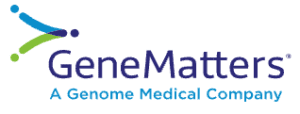GENETIC JOURNEYS
Meet Milo
His parents’ odyssey to uncover a unique genetic mutation.
It seemed like a typical pregnancy at first. But Karen Park and Peter Lorentzen soon realized that their son would not have a typical childhood. Milo was born with several significant anomalies that doctors determined were caused by unknown genetic mutations.



Karen and Peter waited fearfully in the neonatal intensive care unit for days to be told the severity of Milo’s condition. Eventually, a speculative diagnosis was made — based solely on his physical abnormalities — and presented to them with a high degree of certainty. But the diagnosis didn’t fit what they saw in Milo.
As a professor, Peter had full access to the scientific literature on the syndrome the NICU believed was the cause of Milo’s abnormalities. He read everything he could find and was able to connect with researchers as a fellow academic to learn more. It soon became clear to Karen and Peter that the initial diagnosis was incorrect. There were some similarities with Milo’s condition, but too many important differences. They didn’t know who they could turn to for accurate answers. Genomics experts are mostly hidden in esearch facilities, labs and universities.
“Years ago, we did not have the guidance we needed to help our son. And he suffered through countless examinations because of it. We were forced to be our own advocates — poring over medical research and pleading with experts across the country. Today, Genome Medical exists so that other families will not have to experience what we did.”
– KAREN AND PETER, PARENTS OF MILO
They began their own research, and then raised their concerns to the medical staff, who quickly dismissed them as another example of “those parents” who cause trouble when they should have just followed what they were told.
Meanwhile, the hypothesis-driven diagnosis caused Milo to be subjected to test after test. He had just been born and already endured multiple blood draws that were especially painful for his small veins, endless physician visits and long waiting periods of agonizing uncertainty. Still no answers were forthcoming. Karen and Peter knew they had to take matters into their own hands.
What they found was a genetic mutation that had never before been documented. Finally having the concrete evidence they needed, Karen and Peter began to find other children with the same symptoms as Milo.


Even with Peter’s academic background, seeking out similar cases was like navigating a strange city without a map. They chased every lead they could, and eventually came across the blog of a man whose son has a different rare genetic disorder. He had gone through much of what Karen and Peter had with a similar pattern of misdiagnosis. He introduced them to a team of geneticists who would analyze Milo’s DNA using exome sequencing. What they found was a genetic mutation that had never before been documented. Finally having the concrete evidence they needed, Karen and Peter began to find other children with the same symptoms as Milo. Their search for answers continues, but they believe this previously undocumented mutation is the cause of their son’s condition.
Genome Medical exists so that other families will not have to experience what they did.
Karen and Peter regret that Milo had to suffer through countless examinations over the first few years of his life because exome analysis was not offered upfront. They were forced to be their own advocates — poring over medical research and pleading with experts across the country. Today, Genome Medical exists so that other families will not have to experience what they did.
Our genetic specialists integrate genomic medicine and genetic counseling for faster and more accurate diagnoses. They determine the right tests early and help interpret the results to connect people with the right specialists. With Genome Medical’s help, Karen and Peter could have focused on their son rather than building their own network of geneticists.
No one should have to fight so hard for answers. Genome Medical now provides support and care coordination so that you and your loved ones will never be alone on your genomic journey.


How Can we help?
Have questions about how your genetics may impact your health or the health of a family member? Genome Medical is now accepting new patients.


